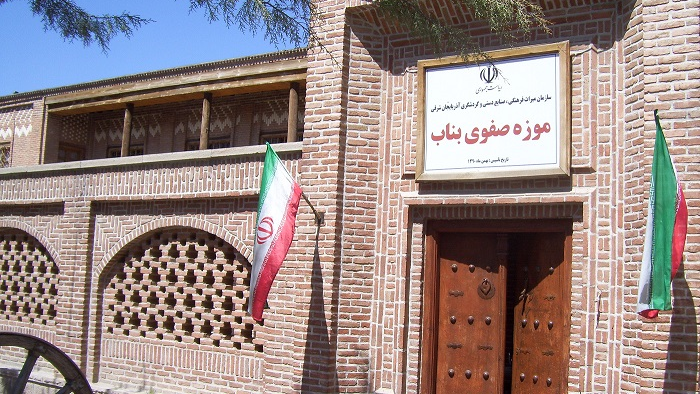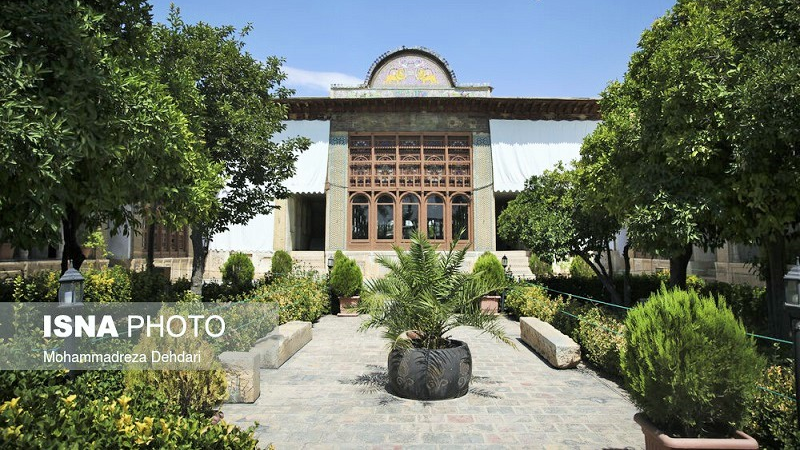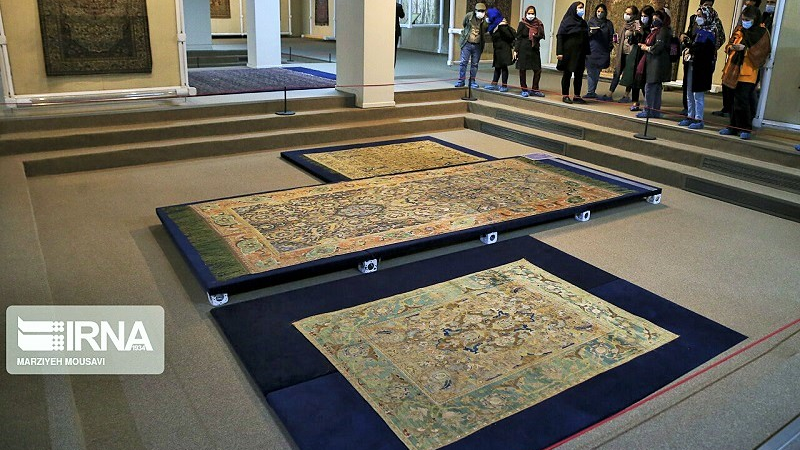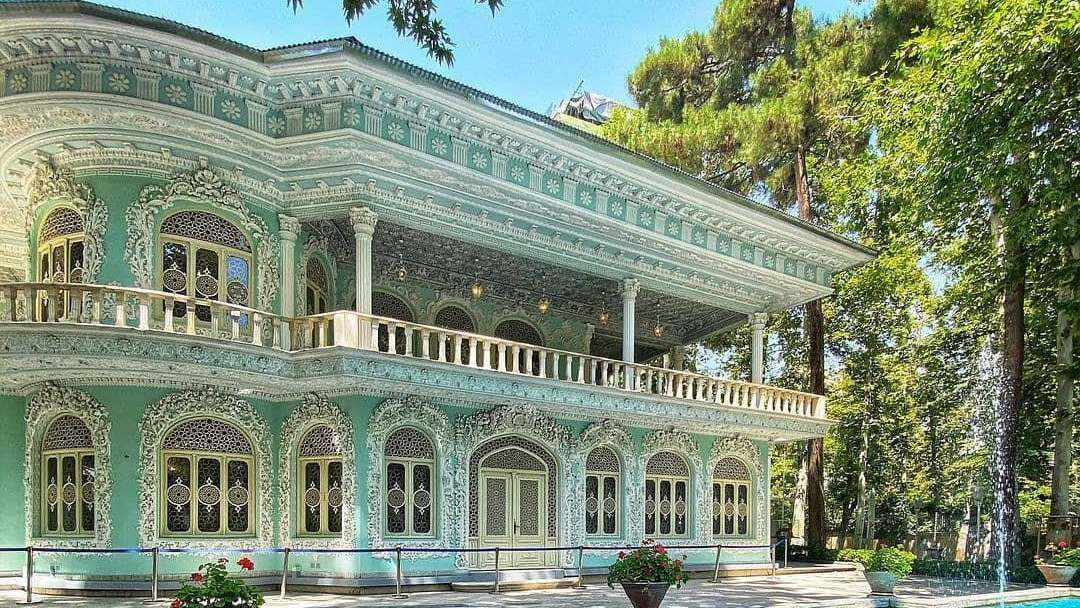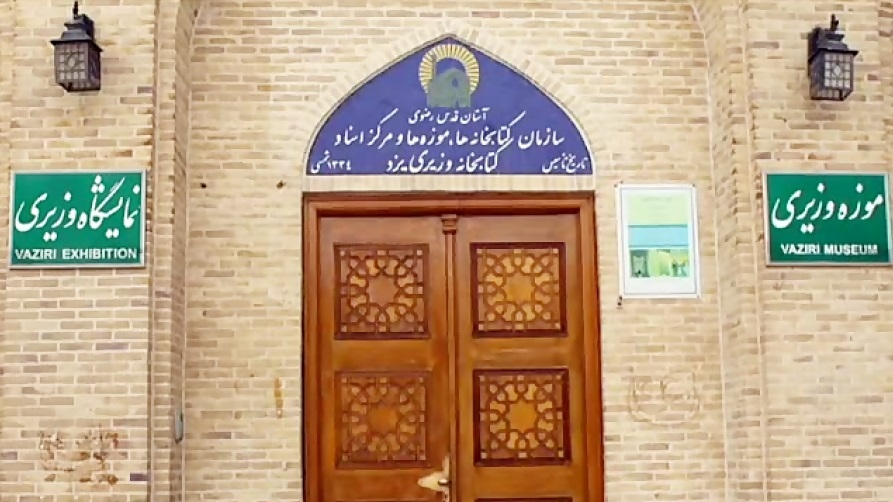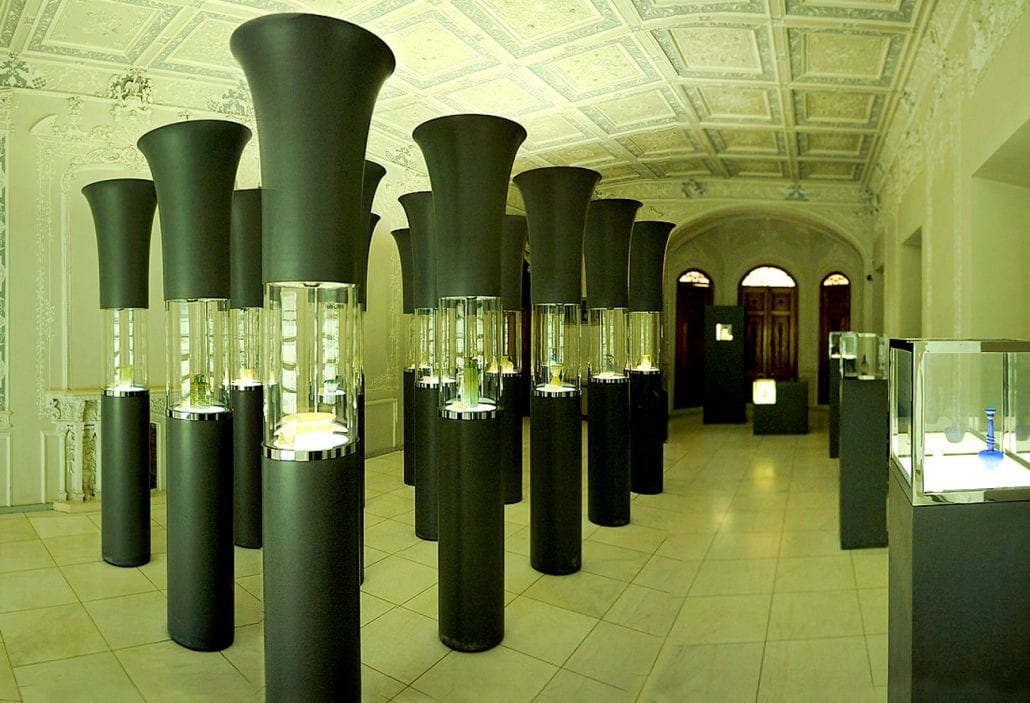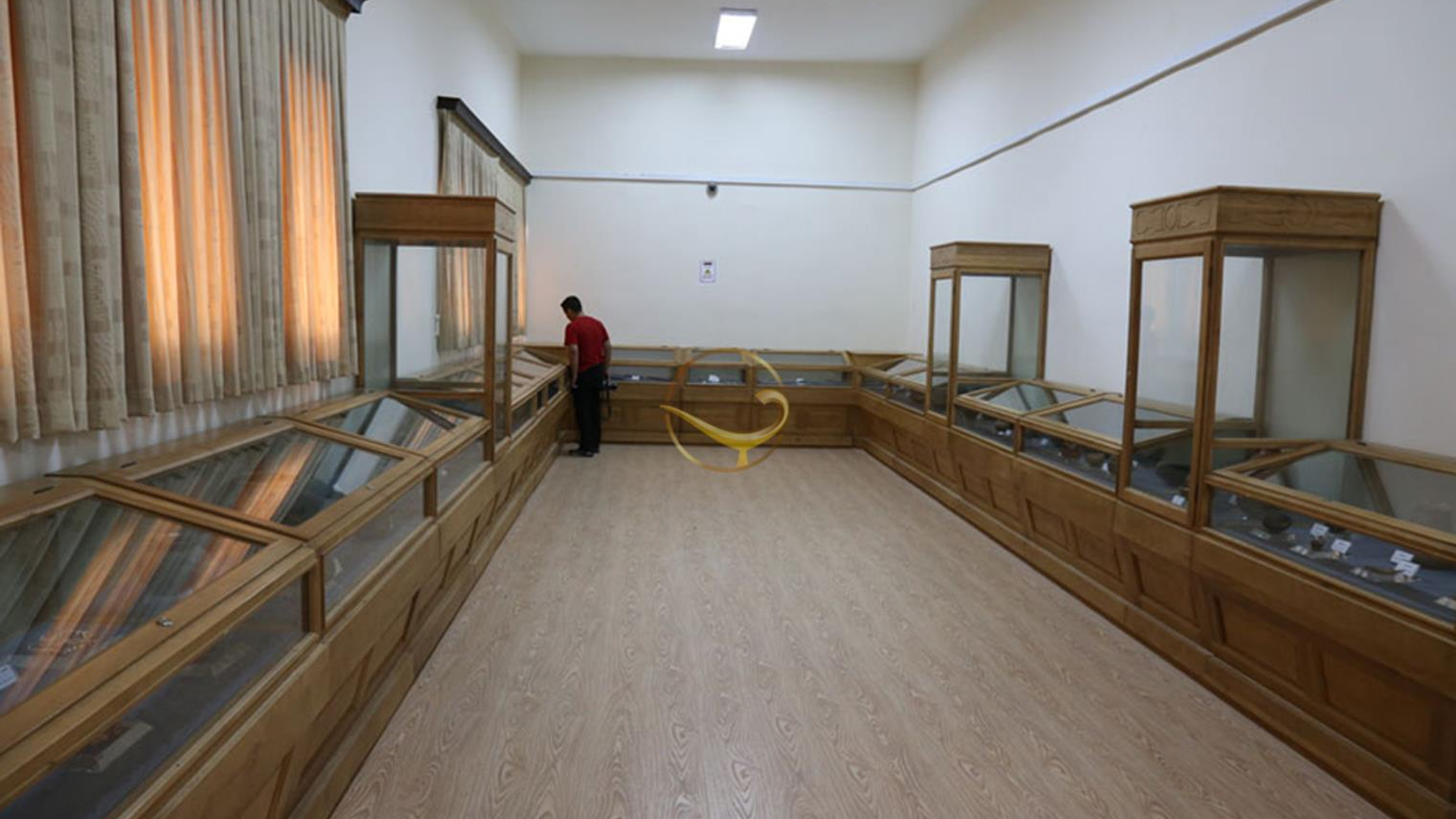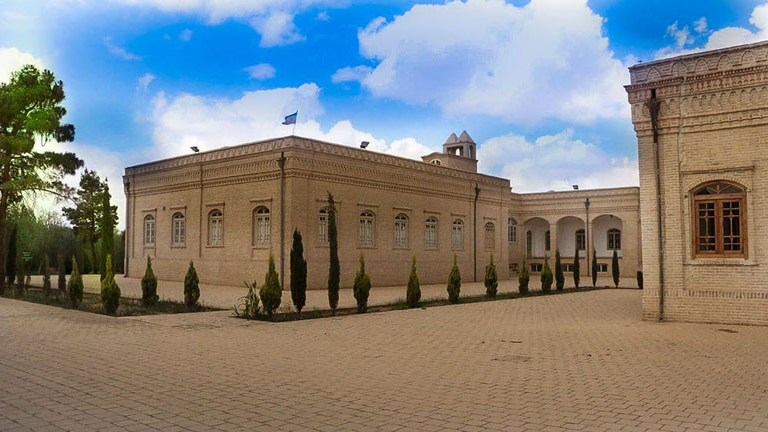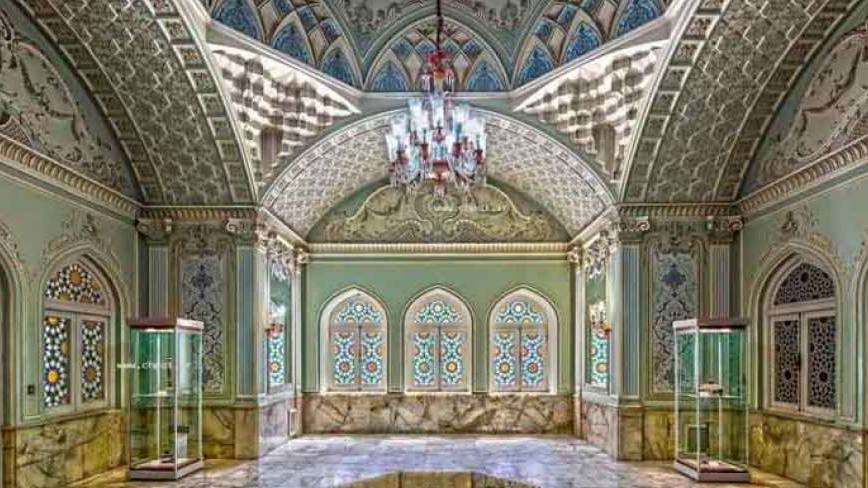
Tabriz Museum of Qur’an and Manuscripts
After the advent of Islam in Iran, Iranian artists used their artistic experience to serve their beliefs. The outcome of this trend was the creation of unique and beautiful works as the manifestations of Islamic art, which continue to arouse the admiration of every viewer. One of the arts and techniques that grew in Iran after Islam was scribing and the sanctity and exaltation of the Holy Qur’an prompted Iranian artists to put in their best efforts to scribe copies of the Holy Qur’an in the best possible handwriting. Tabriz Museum of Qur’an and Manuscripts” was established to display old copies - both printed and manuscripts - of the Holy Qur’ans and the art of calligraphy in creating masterpieces.
Where Is the Tabriz Museum of Qur’an and Manuscripts Located?
This museum is located in the Sahib al-Amr Mosque of this city. This mosque, which is also known as Shah Tahmasp Mosque, is one of the old mosques of Tabriz. The plasterwork, decorations, and architecture of this mosque are very beautiful and eye-catching. The main structure of the mosque has been built with bricks and it has a dome and two minarets. The portal of the mosque is decorated with plaster moldings.
According to historical evidence, after the Ottoman troops attacked Iran, this mosque was completely destroyed and rebuilt during the reign of Shah Sultan Hossein (reigned from 1668 to 1726 AD), the last Safavid king. Later, the devastating earthquake of 1779 AD caused a lot of damage to the mosque, but it was restored about seventy years later. Presently, what is left of the original building of the mosque are two marble arches. There is a marble inscription next to one of the arches, and the verses of Surah Al-Jinn can be seen on the top of the other arch. This mosque was inscribed on the list of Iran’s national heritage in the year 2001.
Features of Tabriz Museum of Qur’an and Manuscripts and the Objects Preserved in It
The establishment of the Tabriz Museum of Qur’an and Manuscripts dates back to 2001 AD. 190 volumes of old and handwritten Qur’ans are displayed in this museum. Iran’s smallest gilded Qur’an with dimensions of six by four centimeters and a handwritten Qur’an sheet known as “Imam Reza's Qur’an” are among the most interesting copies of the Holy Qur’an in this museum. Imam Reza’s Quran was written on deer skin and dates back to the 3rd century AH (9th and 10th centuries AD). A very exquisite manuscript of the Holy Qur’an belonging to the Timurid period (14th to 16th century AD) is also kept in the museum. The works of the greatest calligraphers in the history of Iran, including Mir Emad Hassani, Mulla Abdulbaqi Tabrizi, Mirza Taher Khoshnevis, Mohammad Hossein Tabrizi, Alireza Abbasi, Alauddin Beig Tabrizi, Darvish Abdulmajid, and Mirza Mohammad Shafi Tabrizi can be seen in this museum.
In addition to the copies of the Holy Qur’an, there are also objects related to the art of calligraphy in the museum, including engraved pencil cases, metal plaques, metal inkpots (related to the Qajar era/19th century AD), a brass bowl decorated with verses of the Qur’an (related to the year 1110 AH) / 1698 AD) and porcelain and earthenware decorated with Qur’anic verses. In the past, Iranian physicians and judges (at the time of taking cases for judgment) used to wear a special linen shirt, which was known as the “oath shirt” and verses from the Qur’an were written on it, in their swearing-in ceremonies. There is an oath shirt from the 13th or 14th century AH (19th century CE) in the Tabriz Museum of Qur’an and Manuscripts, with verses of the Qur’an written on it. The other items of interest in this museum include a stone tablet in Elamite script related to the rule of the Elamites (third millennium BC) and pieces of marble remaining from the original building of the mosque.
| Name | Tabriz Museum of Qur’an and Manuscripts |
| Country | Iran |
| State | East Azerbaijan |
| City | Tabriz |
| Type | Historical |
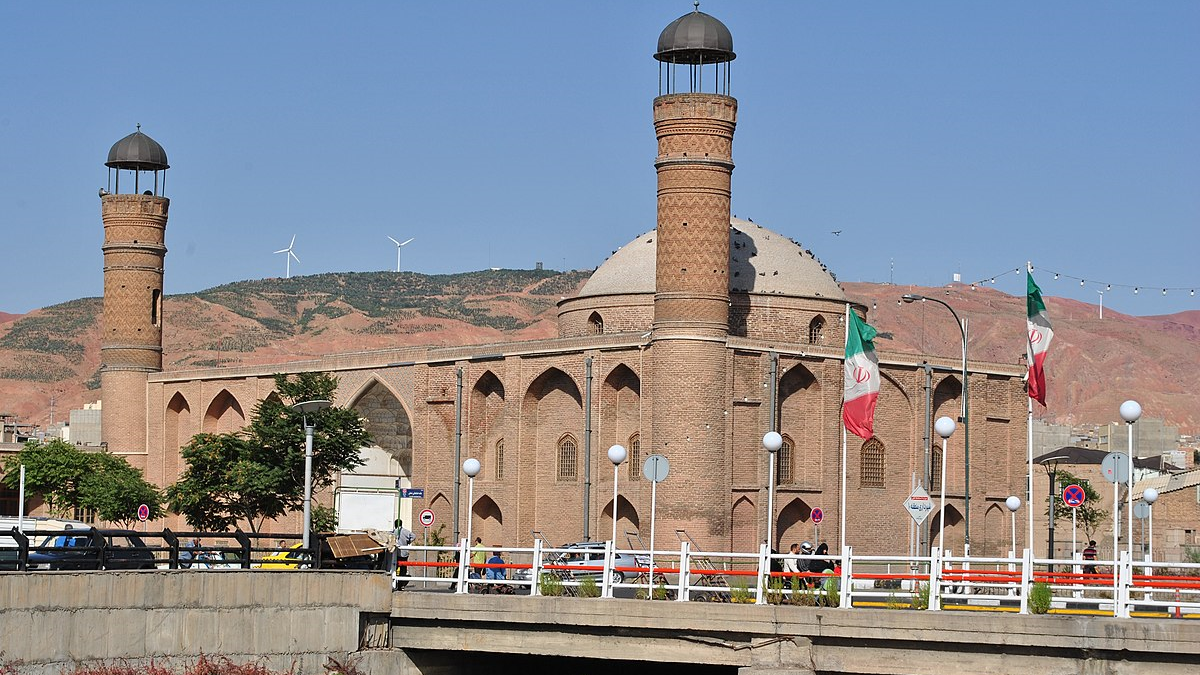
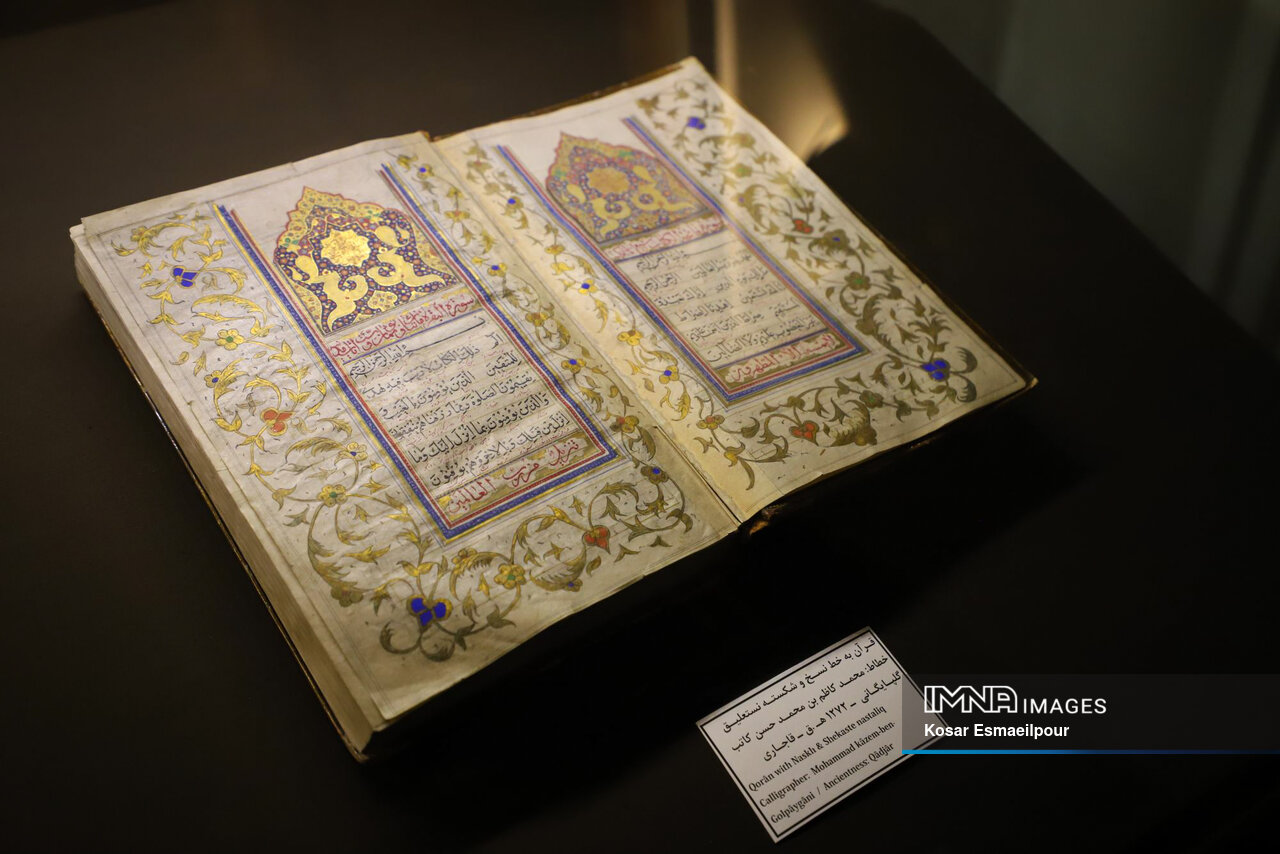
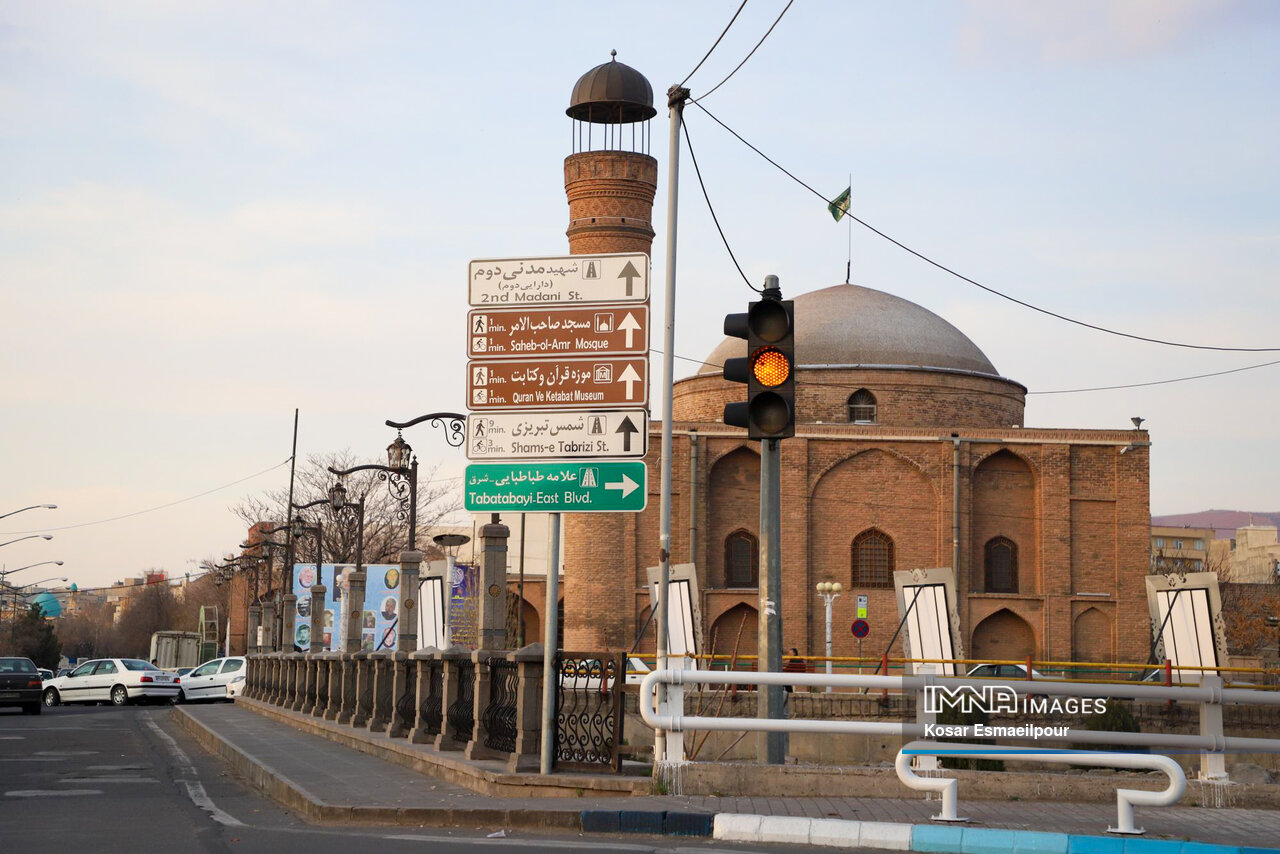
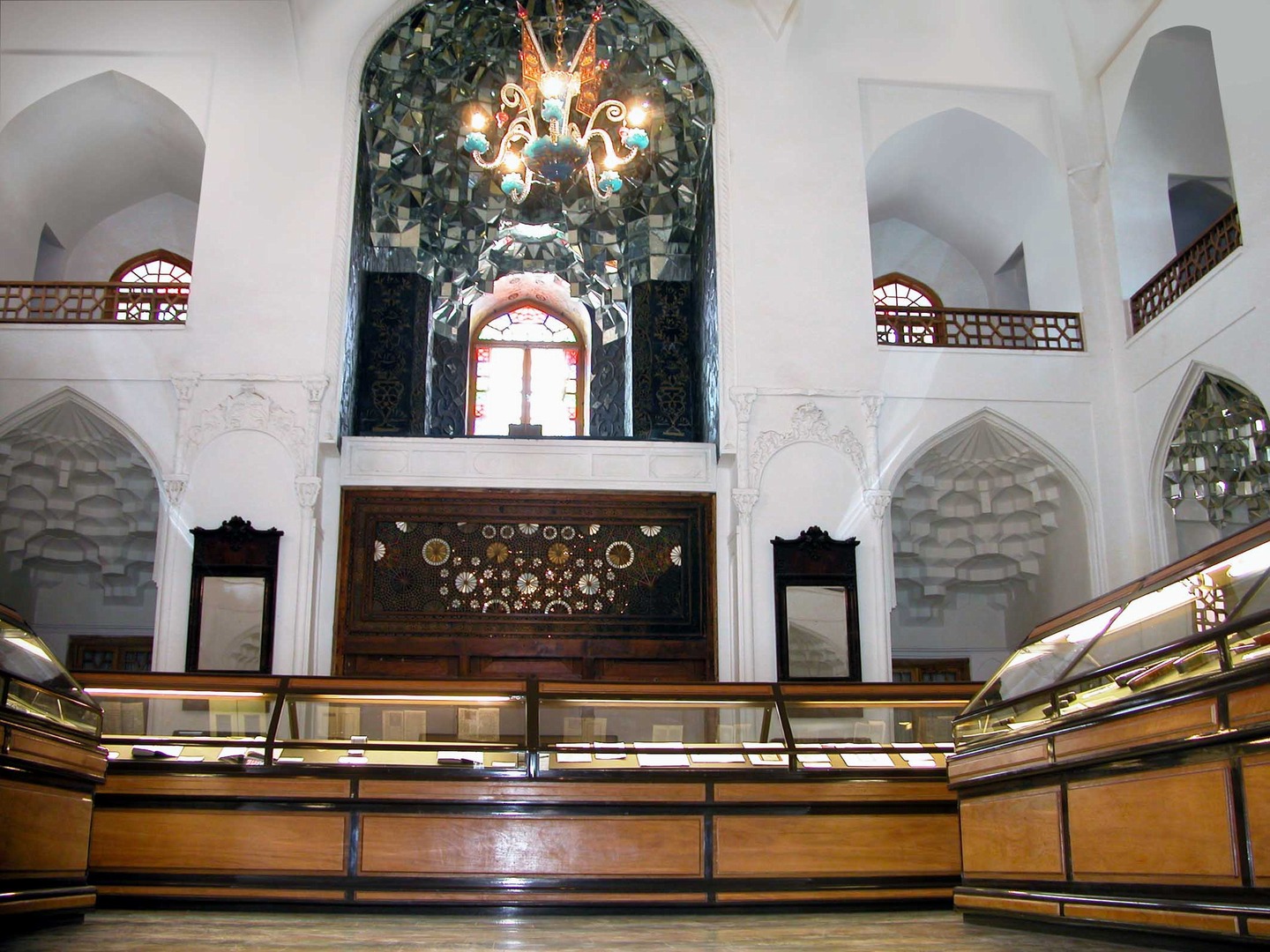




Choose blindless
Red blindless Green blindless Blue blindless Red hard to see Green hard to see Blue hard to see Monochrome Special MonochromeFont size change:
Change word spacing:
Change line height:
Change mouse type:


